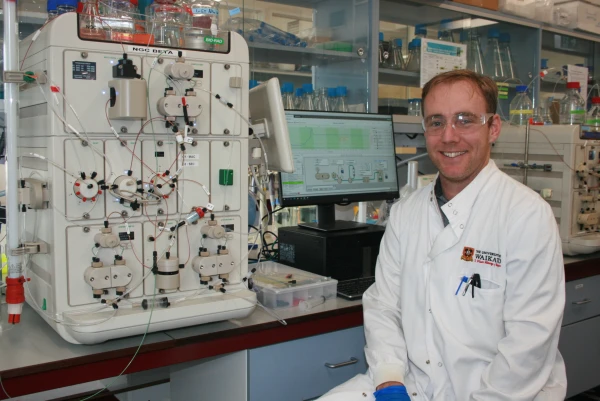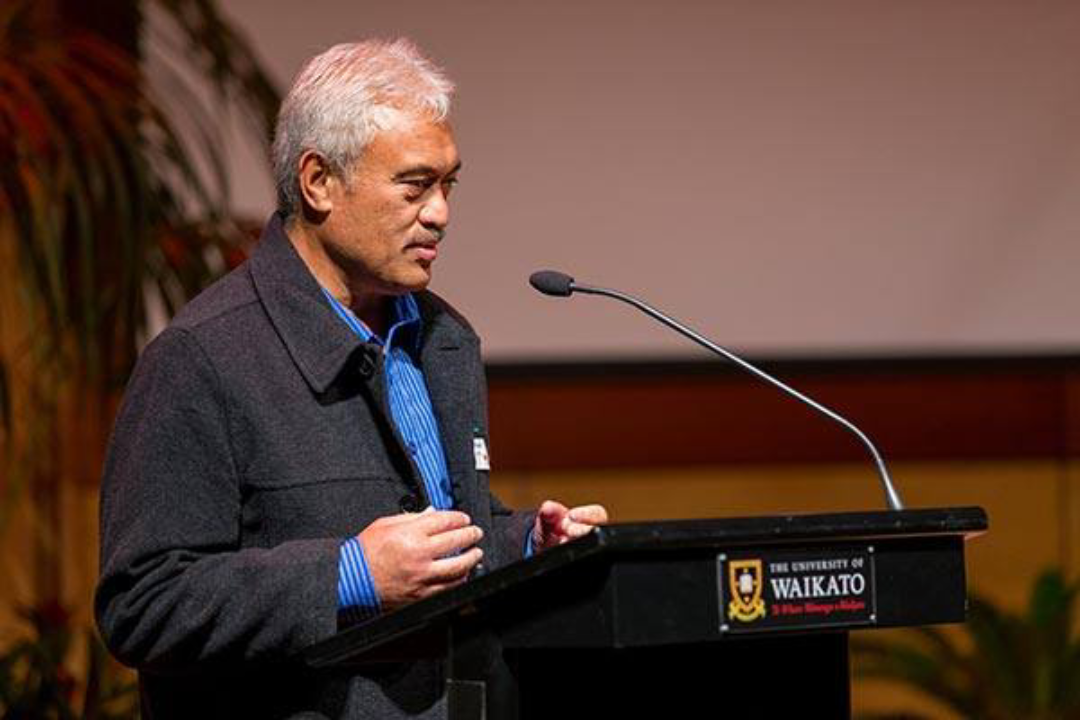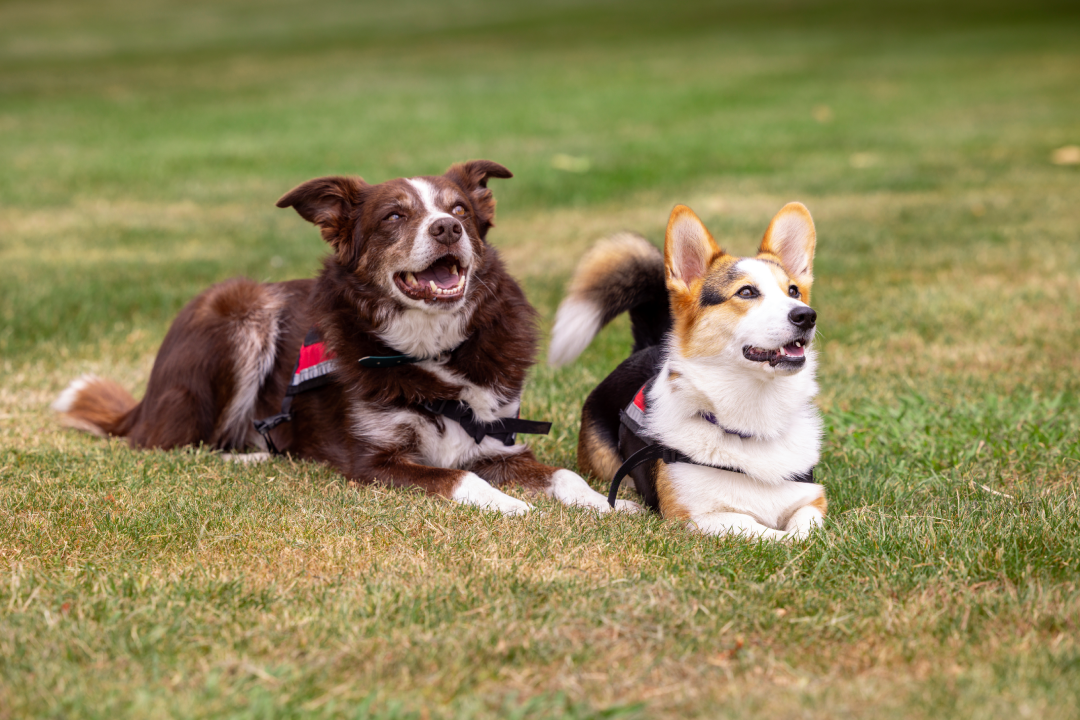Or imagine drinking a glass of milk to reduce your chances of picking up a nasty bug that’s ripping through your community?

Immunologist Dr William Kelton from the University of Waikato
It’s all possible with the development of hyperimmune milk. And it’s not pie in the sky, a proof of concept was achieved in late 2021.
University of Waikato applied immunologist Dr William Kelton, in collaboration with structural biologist Dr Adele Williamson, and biotech innovators Ruakura Technologies (RuaTech) are developing milk with enhanced immune protection against human pathogens. The science mimics nature and can be compared to the way a mother’s milk protects a newborn baby.
“At the height of the Covid-19 pandemic we demonstrated we could produce specific antibodies in sheep milk to aid the human immune response to coronavirus,” says Dr Kelton.
The product starts with the development of artificial components to mimic the outer protein or antigen of a virus of interest. This ‘smart-antigen’ is administered to sheep to stimulate an immune response that then naturally produces antibodies that carry into its milk. Antibodies are produced by the body to neutralise invading viruses. Hyperimmune milk can then be used as a supplement to bolster humans against a specific disease-causing virus.
The estimated value of the hyperimmune milk is many times the standard milk-solid prices, meaning only a few weeks of hyperimmune milk production could enable farmers to significantly reduce herd size without reducing income.
The technology could provide an early rapid response intervention for new viruses.
“This is a stage when vaccinations and medical treatments are still being developed and we know from Covid-19 that the ability to provide early treatments will be a game-changer,” says Dr Kelton.
“Hyperimmune milk is a nutraceutical. A health supplement will never take the place of a vaccine, but unlike a vaccine, it’s much easier to adapt a milk product, as a virus adapts.”
Dr Kelton is now looking to a hyperimmune milk to boost the immune response to the highly contagious norovirus.
Norovirus is a gastro-intestinal virus, and outbreaks are well known for ripping through settings like age-care facilities, early childhood centres and cruise ships.
“There’s no effective treatment, you simply have to suffer through a few days of vomiting, diarrhoea and stomach pain.”
Every year norovirus causes around 685 million infections worldwide and is estimated to cost $60 billion dollars in mostly lost productivity – that’s people off work sick or caring for others.
With few treatment options the global market for a health product to boost protection is huge.
“We’re also working to increase the effectiveness of the hyperimmune milk by increasing the numbers of antibodies specific to the virus of interest. There’s different types of antibodies and we want to bias the milk to produce those that specifically function in the parts of the human body associated with the disease – so in the case of norovirus we want to up the numbers of IgA antibodies that work best in the human gastro-intestinal tract.”
The team are further exploring use of the technology across multiple ruminant species. These developments are creating interest in the veterinary health sector.
“Several animal vaccines on the market rely on old technologies and are less effective than they could be,” says Dr Grant Smolenski, RuaTech CEO.
“We’ve had interest from several global animal health companies that want to use our ‘smart-antigen’ technology in the creation of new, more effective, vaccines.”
Hyperimmune milk research is accelerating value-add technologies to maximise the economic potential of our agriculture sector.
“It’s about providing scientifically backed health products to help people to avoid or fight off viral infection during outbreaks. Imagine the benefits of being able to supply this to a retirement village at the start of a norovirus outbreak or future viral pandemic?,” says Dr Kelton.
This research aligns with the following United Nations Sustainable Development Goals:




